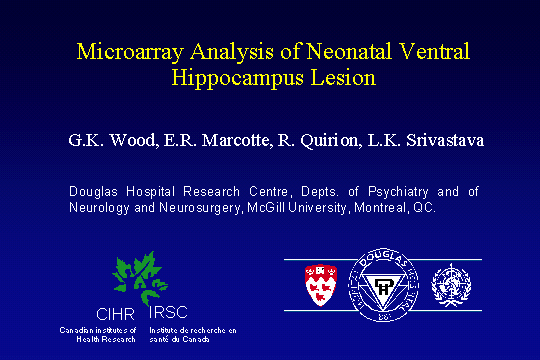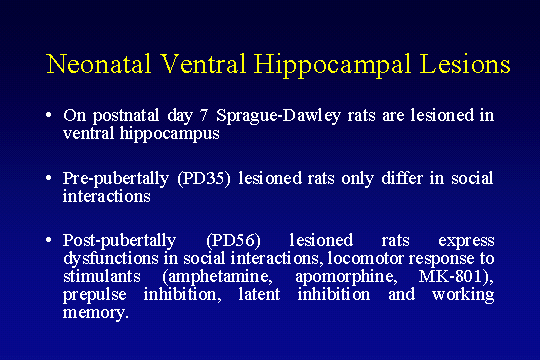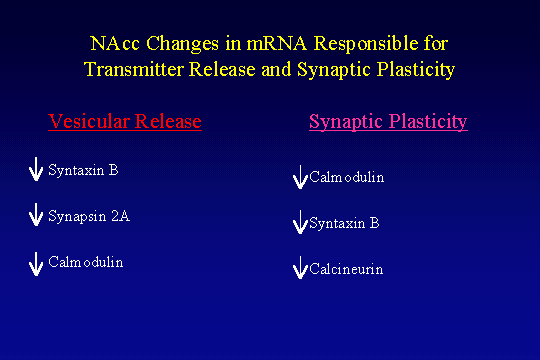GENE EXPRESSION CHANGES FOLLOWING
NEONATAL VENTRAL HIPPOCAMPAL LESIONS
G.K. Wood, E.R. Marcotte, R. Quirion,
L.K. Srivastava
Psychiatry, Douglas Hospital Research
Center, McGill University, Montreal PQ, Canada
Neonatal excitotoxic lesions of the rat
ventral hippocampus (VH) have previously been demonstrated to induce behavioral
and pharmacological abnormalities analogous to those observed in
schizophrenia. In particular, these animals display postpubertal emergence
of altered dopamine-mediated behaviors that are reflected of increased NAc
sensitivity to DA agonists and reduced prefrontal dopamine downregulation of
locomotion. To better characterize the neurochemical substrates underlying
these alterations, we have used DNA microarrays to examine gene expression
profiles in the adult PFC and NAc of neonatally VH lesioned rats. RNA was
extracted from pooled micropunched samples of 12-15 rats and reverse transcribed
to make 32P-labelled cDNA probes that were hybridized to identical
membranes containing 1,176 known rat genes (Atlas Array, Clontech). Three
main clusters of altered gene transcripts showing up to 6 fold changes were
detected, involving synaptic terminal proteins, cAMP-dependent signal
transduction elements, and Ca2+ binding proteins. These findings support
the critical role of various signal transduction pathways in mediating some of
the behavioral and biochemical changes observed in this animal model.
Slides:
 |
 |
 |
